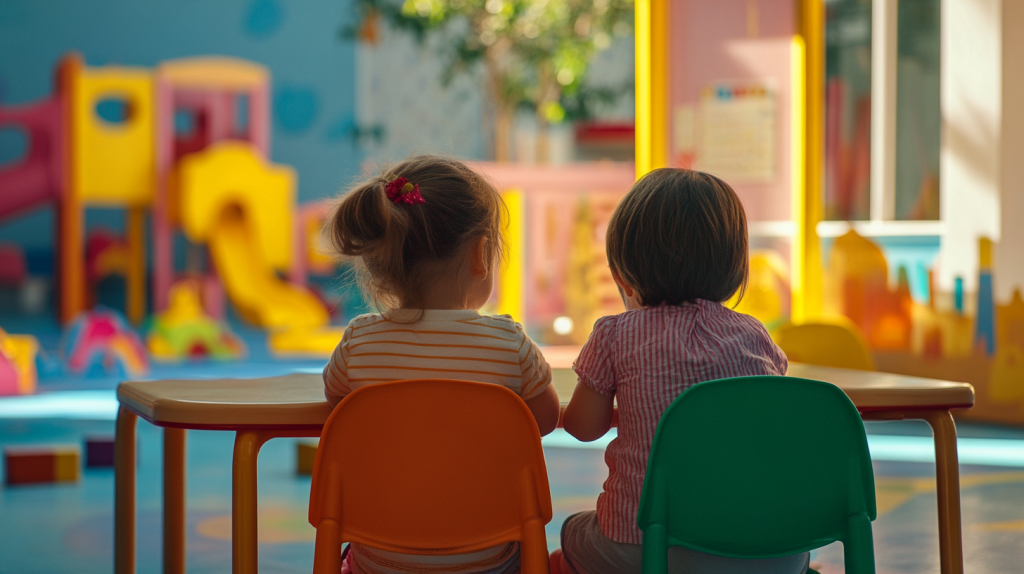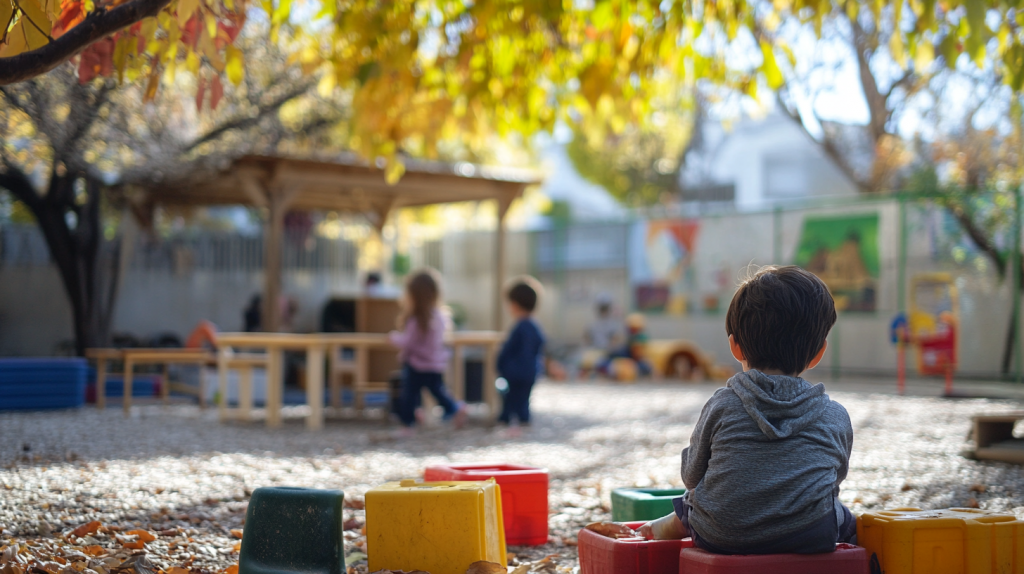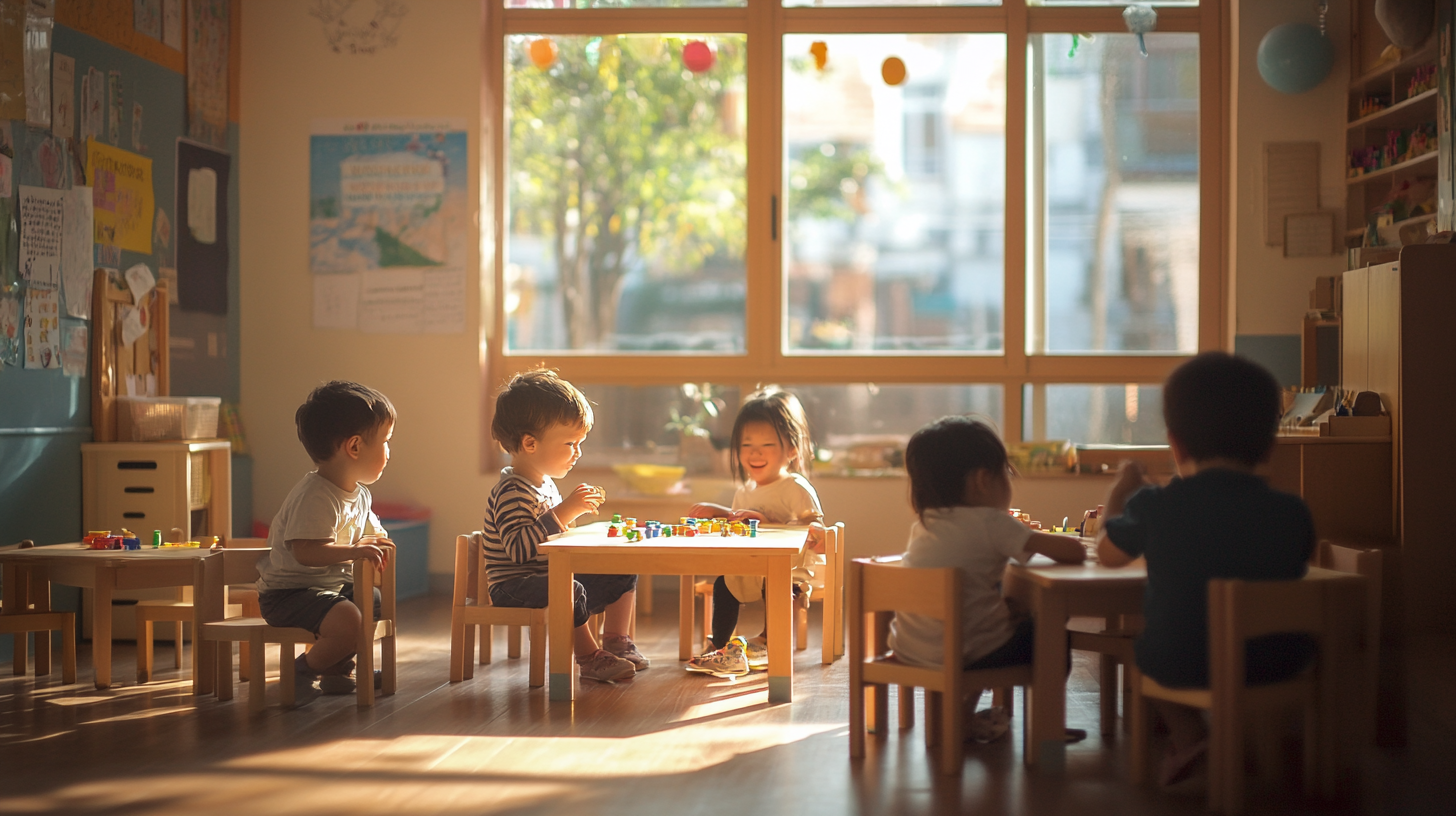In today’s fast-paced world, fostering independence in children is more important than ever. As society evolves, the demands on young people continue to grow, making it essential for children to develop the ability to think and act independently from an early age. Children who develop a sense of independence early on are better equipped to tackle life’s challenges, make decisions, and become self-reliant adults. They are more likely to approach problems with confidence, adapt to new situations, and take initiative, setting a strong foundation for future success. Daycare centers play a vital role in nurturing this independence by engaging children in various activities that promote self-growth and confidence. Let’s explore how daycare activities contribute to child development and the nurturing of independence.
Understanding Child Development and Independence
Child development is a complex process that involves physical, cognitive, emotional, and social growth. Each of these aspects is intertwined, and developing independence requires nurturing them simultaneously. Independence, a crucial aspect of this development, enables children to explore their surroundings, make choices, and learn from their experiences. It is the driving force that allows children to understand their capabilities and boundaries, fostering a sense of autonomy. Daycare activities are designed to support these areas, providing children with opportunities to practice decision-making, solve problems, and interact with peers. By offering a structured yet flexible environment, daycare centers help children test their limits in a safe space, building confidence in their abilities.
The Importance of Fostering Independence
Independence fosters a sense of agency in children, allowing them to feel capable and confident. When children recognize that they have control over their actions and decisions, they develop a stronger sense of self-worth and motivation. It encourages them to take initiative, try new things, and learn from mistakes. This proactive approach to learning and growth is essential for personal development, as it instills a mindset that values effort and resilience. When children are given the chance to act independently, they develop critical thinking skills and resilience. These abilities are essential for success in school and beyond, helping children become adaptable and resourceful adults. Independence also prepares children to face uncertainties with a positive outlook, knowing they can rely on their judgment and skills.

Daycare Activities That Promote Independence
Daycare centers offer a variety of activities that encourage children to develop independence. These activities are designed to be fun and engaging, while also challenging children to think for themselves and make decisions. By participating in these activities, children learn to trust their instincts and explore their creativity without fear of failure.
Self-Directed Play
Self-directed play is a fundamental activity that encourages independence. It allows children to choose what they want to play with and how they want to engage with their toys. This freedom of choice is crucial in helping children develop a sense of control over their environment, which is an important aspect of independence. This kind of play fosters creativity and imagination, as children create their own games and scenarios. It also helps them develop problem-solving skills as they figure out how to navigate challenges within their play. By experimenting with different roles and outcomes, children learn to approach problems with an open mind and innovate solutions.
Group Activities and Social Interaction
Group activities at daycare promote social interaction and teamwork. Through activities like building a block tower or completing a puzzle, children learn to collaborate, share ideas, and listen to others. These interactions require children to make decisions collectively, negotiate roles, and compromise, fostering independence within a social context. By working together, children also learn to appreciate different perspectives and develop empathy, which are crucial components of effective communication. Such experiences teach children the value of patience and understanding, skills that are essential for building strong, positive relationships.
Routine and Responsibility
Daycare centers often incorporate routines that teach children responsibility. Simple tasks like tidying up toys, setting the table for snacks, or watering plants help children understand the importance of contributing to their environment. These small responsibilities encourage children to take ownership of their actions and understand the consequences of their efforts. These responsibilities build a sense of accomplishment and accountability, key components of independence. By mastering routine tasks, children gain confidence in their ability to manage daily activities, preparing them for more complex responsibilities as they grow.
Arts and Crafts
Arts and crafts activities are excellent for nurturing independence. When children are given the freedom to create, they explore their creativity and express themselves in unique ways. Crafting involves making choices about materials, colors, and designs, encouraging decision-making and innovation. Each project represents an opportunity for children to challenge themselves and see their ideas come to fruition, boosting their self-esteem. Additionally, completing a craft project gives children a sense of achievement and pride in their work. This sense of accomplishment reinforces their belief in their abilities and encourages them to tackle new challenges with enthusiasm.
Outdoor Exploration
Outdoor activities provide children with opportunities to explore and discover the world around them. Nature walks, playground time, and gardening activities encourage curiosity and observational skills. These activities allow children to interact with their environment in a hands-on way, prompting them to ask questions and seek answers independently. These experiences help children develop independence by allowing them to explore their interests and learn about their environment firsthand. Through outdoor exploration, children cultivate a sense of wonder and appreciation for the natural world, laying the groundwork for lifelong learning and exploration.
The Role of Daycare Educators in Fostering Independence
Daycare educators play a crucial role in fostering independence by creating an environment that supports child development. Their guidance and support help children navigate the complexities of growing up, ensuring they feel safe and encouraged to explore. They act as facilitators, guiding children through activities while allowing them the freedom to explore and make decisions. By balancing support with independence, educators help children build confidence and self-reliance. Here are some ways educators can encourage independence:
Encouraging Problem Solving
Educators can help children develop problem-solving skills by posing open-ended questions and encouraging them to think critically. This approach invites children to explore multiple solutions and consider different perspectives, enhancing their analytical skills. Instead of offering immediate solutions, educators can guide children to explore different options and come to conclusions on their own. This method helps children develop a growth mindset, where they view challenges as opportunities to learn rather than obstacles to overcome.
Providing Choices
Giving children choices empowers them to take charge of their actions. When children are allowed to make decisions, they learn to trust their judgment and feel more in control of their experiences. Whether it’s selecting a book to read or choosing a toy to play with, offering choices helps children develop decision-making skills and boosts their confidence. This empowerment encourages a sense of responsibility for their choices, fostering independence and accountability.
Promoting Self-Help Skills
Teaching children self-help skills, such as dressing themselves or washing their hands, is an important aspect of fostering independence. These practical skills are essential for everyday life and help children build confidence in their ability to care for themselves. These skills enable children to take care of themselves and build self-reliance. As children master these tasks, they develop a sense of pride and accomplishment, reinforcing their belief in their capabilities.
Supporting Emotional Development
Emotional independence is just as important as physical independence. It involves understanding and managing one’s emotions, as well as developing empathy for others. Educators can support emotional development by encouraging children to express their feelings, teaching them to manage emotions, and helping them build empathy through interactions with peers. By fostering emotional intelligence, educators help children build resilience and form healthy relationships, which are crucial for lifelong success and happiness.

The Benefits of Fostering Independence in Daycare
Fostering independence in children through daycare activities offers numerous benefits that extend beyond the daycare setting. These advantages impact various aspects of a child’s life, contributing to their overall well-being and development. Here are some of the key advantages:
Improved Confidence and Self-Esteem
Children who develop independence have higher self-esteem and confidence. They feel capable of handling challenges and are more willing to take risks and try new things. This self-assuredness allows them to pursue goals with determination and resilience, knowing they can overcome obstacles. As they experience success, their confidence grows, encouraging them to continue exploring and learning.
Enhanced Problem-Solving Skills
Independent children are better problem solvers. They learn to analyze situations, think critically, and come up with solutions, skills that are essential in both academic and real-world scenarios. These problem-solving abilities enable children to navigate complexities with ease and adapt to changing circumstances. By developing these skills early, children are better prepared for future challenges and opportunities.
Better Social Skills
Daycare activities that promote independence often involve social interactions, helping children build strong communication and teamwork skills. These skills are crucial for forming healthy relationships throughout life. By learning to collaborate and negotiate with others, children develop empathy and understanding, which are essential for creating meaningful connections. As they grow, these social skills become invaluable assets in both personal and professional settings.
Preparation for School
Children who develop independence in daycare are well-prepared for the transition to school. They are accustomed to following routines, taking responsibility for their actions, and making decisions, making the adjustment to a school environment smoother. This preparation gives them a head start in academic and social settings, allowing them to thrive in a structured learning environment. As they continue their educational journey, the independence fostered in daycare serves as a strong foundation for future success.
Conclusion
Fostering independence in children is a fundamental aspect of child development, and daycare activities play a significant role in nurturing this independence. By providing opportunities for self-directed play, social interaction, responsibility, creativity, and exploration, daycare centers help children build the skills they need to become confident, self-reliant individuals. These experiences shape their ability to navigate life’s challenges with resilience and adaptability. With the guidance of dedicated educators, children can thrive and develop the independence necessary for success in life. As parents and caregivers, supporting this journey in daycare settings can make a lasting impact on a child’s growth and future. By investing in early independence, we lay the groundwork for a generation of empowered, capable individuals ready to contribute positively to society.
Contact Discovery Time Learning Center
Are you ready to empower your child with the independence they need to thrive? At Discovery Time Learning Center, we provide a nurturing environment that fosters self-reliance, confidence, and emotional development. Contact us today to learn more about our programs and how we can support your child’s growth!



